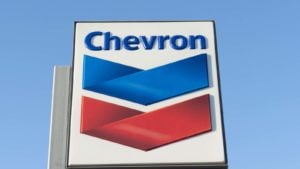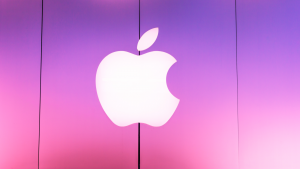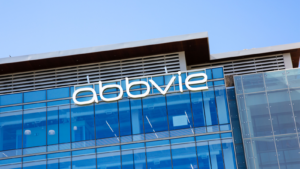It turns out that Einhorn’s new religion keeps some principles of value investing. However, he believes that many money managers no longer care about valuation as a primary measure of whether a stock is a buying opportunity.
It’s hard to argue that point when you look at the stocks that are fogging the mirror of institutional investors. But, if the last five years have shown investors anything it’s that valuation doesn’t matter until it does. Besides, Buffett also considers companies that offer a competitive advantage, have a strong brand with a substantial customer base, and a moat (i.e. a high barrier to entry).
Looked at in that light, it’s never a bad time to look at some of the best Warren Buffett stocks to buy. Here are some holdings that look particularly good as the summer heats up.
Occidental Petroleum (OXY)

There are many reasons to make Occidental Petroleum (NYSE:OXY) the first stock on this list of the best Warren Buffett stocks for July. But the recent weather headlines move to the top of the list. Hurricane Beryl is bearing down on the Caribbean, and it’s not likely to be the only storm to pass that way.
The National Oceanic and Atmospheric Administration (NOAA) is projecting between 17 and 25 named storms. Not all of them will impact oil production in the Gulf of Mexico, but a forecast like that supports oil prices remaining above $80 a barrel. And all it will take is one bad storm to send oil close to $90 or even $100.
Buffett’s hedge fund Berkshire Hathaway (NYSE:BRK.B) has been buying shares since 2019. His buy zone tends to be when the stock goes below $60. It’s not likely to hit that level anytime soon. However, OXY stock is only up about 4% in 2024 and analysts believe that double-digit gains are in its future.
Chevron (CVX)

If you’re going to make an argument that valuation doesn’t matter, Chevron (NYSE:CVX) would be one of the case studies. Chevron stock has a forward valuation of 11.4x, The company continually beats analysts’ expectations for revenue and earnings despite increasing oil production which is a drag on earnings. And perhaps, most importantly, the last time oil prices were this high CVX stock was trading about $10 higher than its closing price on July 3, 2024.
There are still some details to be ironed out concerning the arbitration with ExxonMobil (NYSE:XOM) that will need to be resolved before the Hess (NYSE:HES) merger is complete. Once that’s complete, the company will have much more leverage over oil prices which will be bullish for the stock price.
Analysts see 17% upside for CVX stock and that doesn’t include the company’s rock-solid dividend. Chevron consistently uses its ample cash flow to support shareholder value, and its dividend which has been growing for 37 consecutive years can be supported with oil prices in the $50 range.
Apple (AAPL)

With the stock price up 31% in the last three months, you can make a strong case that Apple (NASDAQ:AAPL) is due for a healthy pullback. That’s the consensus opinion of analysts.
But a consensus opinion doesn’t include all analysts. Several analysts have a price target of $250 and even $260 on AAPL stock.
The primary factor in figuring out the short-term fortunes of Apple will come when the company reports earnings in early August. The company has had a pattern of coming in light on the top line. That’s why all eyes will be on iPhone sales ahead of the next refresh cycle in September.
That uncertainty makes Apple a tricky trade, but if you’re taking a long position, your decision is pretty simple. If the stock pulls back, it’s a buyable dip. And if the company posts a strong earnings report, you can feel comfortable chasing AAPL stock higher.
AbbVie (ABBV)

AbbVie (NYSE:ABBV) is down about 4% as the second half of the year kicks off. This may be a simple rebalancing, or it may be the start of a larger pullback.
Investors have been concerned about the impact on revenue now that the company’s blockbuster drug, Humira, faces biosimilar competition in the U.S. and Europe. However, with drugs such as Skyrizi, Rinvoq, Vraylar and Elahere, the company is confident that it can make up for any lost revenue from Humira.
Nevertheless, AbbVie may be a victim of its own success. The stock’s total return over the last five years has averaged around 35%. And even though the stock continues to outpace the S&P 500, it’s not likely to post that kind of return in 2024.
But most investors aren’t buying ABBV stock for its growth prospects. They can see a fundamentally sound company that has 52 years of uninterrupted dividend increases. That dividend also currently yields 3.78% making it one of the best dividends that value investors can own.
Bristol Myers Squibb (BMY)

Bristol Myers Squibb (NYSE:BMY) checks off many boxes that investors expect from the best Warren Buffett stocks. The company has a solid balance sheet and a high-yield dividend that has been growing for 16 consecutive years. But when you’re considering investing in biopharmaceutical stocks, it comes down to the pipeline.
Like AbbVie and other companies in this sector, Bristol Myers Squibb is not immune from concerns about patent expirations. That’s one reason that BMY stock is down 21.9% in 2024. However, any concerns should be mitigated by the company’s deep pipeline which is concentrated in the field of oncology. This includes its blockbuster skin cancer drug, Opdivo.
Like many large-cap biopharma stocks, Bristol Myers has been growing through acquisition. That’s the main reason why it posted a sharp earnings loss in the first quarter. That will turn around in the coming quarters. That will be bullish for BMY stock which analysts predict will increase by over 30%.
Visa (V)

Buffett has owned Visa (NYSE:V) stock to the Berkshire portfolio in 2011. His stake is only about 8 million shares which is about where he started. That means he’s done some buying and selling. However, since that time, he’s generated a 405% return on that investment.
With a dividend yield of just 0.77%, Visa isn’t the most impressive dividend stock you can find. But while Buffett likes the cash that dividends provide, it’s not the primary reason for his interest in Visa.
That would be the company’s moat. Visa and Mastercard (NYSE:MA) are for all intents and purposes a duopoly when it comes to payment processing. And although fintel companies have attempted to disrupt the industry, Visa has shown that it can adjust and will be a leader in an increasingly cashless world.
Since hitting its all-time high in May 2024, V stock has been in pullback mode. That may be driven by concerns that the consumer is slowing down. Certainly, that could be a concern for traders, but it’s hard to dispute that Visa belongs on any list of the best Warren Buffett stocks.
Kroger (KR)

Kroger (NYSE:KR) is a leading regional grocery chain. And if you look at the company’s earnings history, you have a snapshot of the impact of inflation on food prices in the country. However, after peaking at around $61 in early 2022, KR stock was rangebound until March 2024. That’s when $50 became the floor rather than the ceiling for the stock.
It’s likely to move higher. Analysts are suggesting the stock may move up 14%, but the consensus estimate may be too low.
The reason is that while food prices may not go much higher, it will take a long time for deflation to set in. Oil prices are likely to rise, and virtually everything you buy in the grocery store is affected by the price of oil. Also, if interest rates move lower, that will likely have an inflationary effect as consumer spending increases.
And when you add in a dividend that has a 2.29% yield, you can see why KR stock is an intriguing choice of stocks to buy even if its proposed merger with Albertson’s (NYSE:ACI) is blocked by regulators.
On the date of publication, Chris Markoch had LONG positions in CVX and AAPL. The opinions expressed in this article are those of the writer, subject to the InvestorPlace.com Publishing Guidelines.
On the date of publication, the responsible editor did not have (either directly or
indirectly) any positions in the securities mentioned in this article.
Chris Markoch is a freelance financial copywriter who has been covering the market for over five years. He has been writing for InvestorPlace since 2019.
